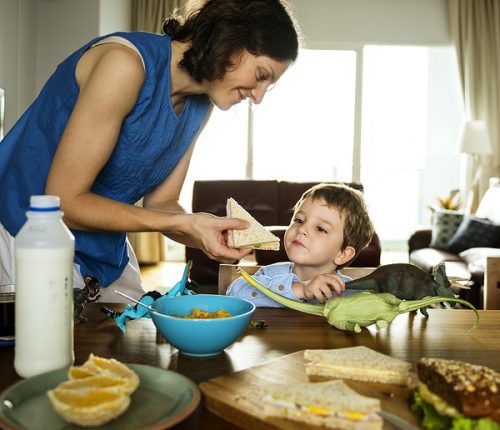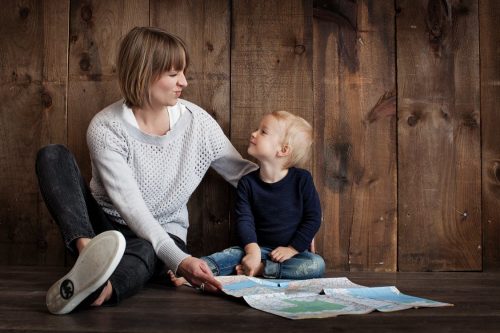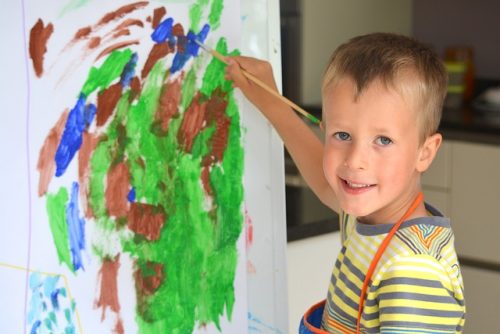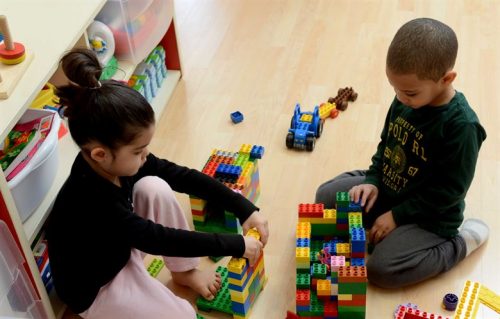
Source: rawpixel.com
My friend Joanne has five children ages 3 to 14, and her home here in California could instantly transform into a madhouse when everybody wakes up in the morning. I should know – I live next door to her. She starts to get busy at 6 in the morning when she makes breakfasts for the kids and then packs their lunches. Frequently, she has to find the other shoes so the preschoolers won’t be late for school. She hurriedly fixes the hair of her seven-year-old and goes to the bathroom to brush her five-year-old son’s teeth. When everyone’s out, and into the bus, she gets to sit for five minutes, chats with me from her patio for 2 minutes, and then gets ready for laundry. She often tells me that it has been an awesome spectacle that she has been blessed with.
Ironically, several studies have proven that parents with three or more children are essentially the happiest. The love and delight that these parents get from their kids surpass the frequent madness of life with a large family. However, due to necessity, parents of many kids must learn to practice smart hacks and tactics in order to keep up with life while maintaining an organization.
Consumption for Large Families
- Develop a routine for favorites. As a parent, it is easier to ask your spouse and children what their top of the list of food and snacks. You can then list them and create a rotation of these food choices weekly or monthly. You’ll find that it becomes less difficult to go grocery shopping and to plan your meals.
- Designate cups, glasses, and plates. When the day starts, it’ll be more organized if your children already have names assigned to their plates and glasses for the day or week. This way, they’ll put them on the counter, and that’ll be their glass for the day.
- Use a large bread to make mini sandwiches. I’ve seen Joanne do this when she prepares lunch packs for her kids. She puts some spread and vegetables on French bread and cuts them into mini-breads for all of them. This is such a great hack.

Source: rawpixel.com
Get Rid of Your Stress
- Be an early bird. Things are indeed more structured in the mornings if you wake up early and get dressed even before the kids are awake.
- When you have trouble keeping the whole house tidy and organized, and you have guests coming over, or you just need to keep some of the house clean, the general suggestion is to make sure that two of the rooms are clean and in order.
- Start a journal. Writing down your happy thoughts and experiences helps improve one’s optimism. Practice it every day and look back on your good memories at the end of the year.
Pacify The Chaos
- Go with color-coding. Designate a specific color to each of your kids. Color-coded glasses imply one glass per kid rather than seeing ten glasses on the sink all at once. When you see towels scattered on the floor, you’ll know who to reprimand and ask to get their mess cleaned up.
- Invest in bins and baskets. I do this, too, with my toddler’s toys and books. It’s going to save you time and space to keep your children’s things in labeled containers. For books, you can rotate them every four weeks into the shelves for your children to reach and use. This hack is definitely a keeper!
- Establish stringent routines. Set after-school rules like taking off their shoes, cleaning their lunch boxes, putting away their backpacks in an assigned space, and then doing their homework. Make them practice these rules every single day until it becomes a routine.
Save Time, Effort, and Space
- Have comfortable hair and tooth brushing spaces. Joanne tells me this hack has really helped her save more time in cleaning and organizing the home. She has a drawer behind the counter for the kids’ toothbrushes, and it’s easier for them to do the brushing after they eat – they don’t need to back upstairs. The hairbrushes are also kept at a certain area in the living room where she can get one and fix her daughters’ hairs while they’re sitting down for breakfast.

Source: rawpixel.com
- Consider one-time reading for everyone. You might have to rethink the usual bedtime stories. With four or more kids, you’d be spending and wasting two hours on that. After their daily routines, invite them over to the living room and let them listen to an interesting audiobook. You can join in too while you’re folding the laundry.
- Do without the extracurriculars for children below 7. It’s been difficult for Joanne to keep track of her 3-year-old playing with the tools in the garden while she’s busy with her other kids. She decided that it wouldn’t take much of her kids’ childhood if they didn’t do too many extracurriculars until they are seven and up. They can be happy and enriched without them for a while.





















